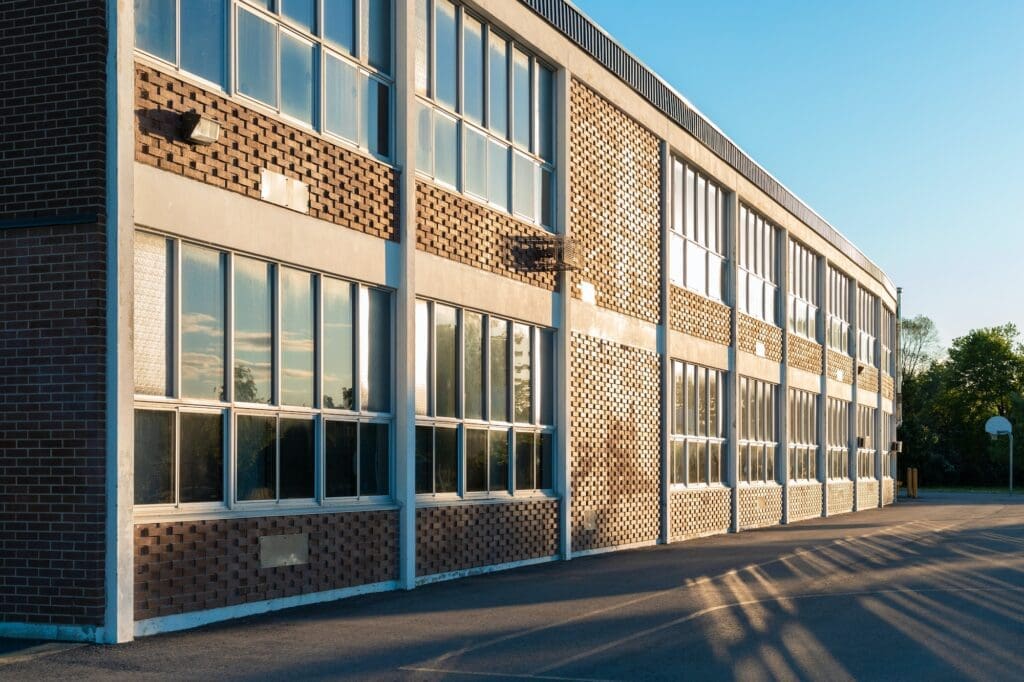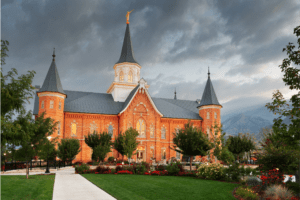Taking a Stand Against Sexual Abuse in Schools: Legal Rights and Resources
This article elucidates the complex yet critical issue of sexual abuse in educational institutions, focusing on the survivors’ legal rights, the path to legal action, and the evolving legal landscape. It aims to provide a comprehensive guide for survivors, their allies, and society as a whole, focusing on the role of legal assistance from Nigh Goldenberg Raso and Vaughn.
Introduction To Sexual Abuse in Schools
Each morning, parents across the country kiss their children goodbye and watch them drive away on the school bus. They assume that they are sending their children to a place where their children will be nurtured, educated, and above all, safe. When children are sexually abused in schools, it is even more heart-wrenching.
This gross transgression of trust violates the survivors’ innocence and leaves a dark stain on our collective conscience. This article seeks to shine a light on this critically imperative issue, delving into the legal facets tied to sexual abuse in schools.
By explaining the rights of survivors, detailing the process of initiating a lawsuit for school sexual abuse, and showcasing the role of legal support of Nigh Goldenberg Raso and Vaughn, we aim to provide guidance for those grappling with such experiences. This discussion intends to fortify the knowledge base of survivors, allies, and society, enhancing the collective ability to combat and address this distressing issue.

Sexual Abuse in Schools: An Unsettling Reality
The first step towards eradicating any problem is understanding its scope, which often means peeling back layers of discomfort and denial.
The range of these heinous actions spans from the overtly violent—such as rape or attempted rape, and non-consensual touching—to the surreptitiously harmful, like the exposure to inappropriate sexual materials, or the voicing of sexual comments and innuendos. It’s a deeply unsettling reality that the individuals entrusted to shape young minds can instead inflict immeasurable harm.
The Government Accountability Office (GAO) has shared alarming data that a single teacher engaging in sexual misconduct can affect up to 73 student survivors—an unthinkable statistic that underscores the urgency and necessity of confronting this issue. We can take meaningful steps toward prevention, justice, and healing by acknowledging this distressing reality.
School Sexual Abuse: A Woefully Underreported Crime
One of the most disturbing aspects of sexual abuse in schools is the startling extent of its underreporting. Children are often conditioned to trust and respect authority figures in their educational environment. When this trust is exploited, it can lead to a complex tapestry of emotions, ranging from fear and confusion to a deep-seated sense of betrayal. The reality of their abuse may not be immediately clear to them, especially when grooming or manipulation is involved. Such circumstances contribute significantly to the underreporting of these heinous incidents.
Moreover, there can be an intimidating cloud of stigma and survivor-blaming that often accompanies disclosures of abuse. These barriers can deter survivors from speaking out, exacerbating the issue of underreporting. The fear of not being believed, of retribution, or of losing their support system can be overwhelming. This leaves countless incidents unreported and countless survivors silently grappling with their trauma.
In addition, the very people entrusted to ensure the safety and well-being of the children, the educators, can fail in their duty as mandatory reporters. The threat of job loss, tarnished reputations, or the disruption of their institution’s image can deter them from reporting incidents they become aware of. This culture of silence serves to shield perpetrators, perpetuate abuse, and make the journey to justice even more challenging for survivors.
Legal Rights of School Sexual Abuse Survivors: Know Your Ground
For survivors of school sexual abuse, understanding their legal rights is a powerful first step toward seeking justice. At the foundation of these rights is the age of consent. It’s important to note that the age of consent varies by state in the United States. Still, any sexual relationship between a school employee and an underage student falls squarely within the realm of sexual abuse, regardless of the minor’s perceived consent. This is due to the inherent power imbalance in such relationships.
Beyond this, the rights of survivors extend to filing a lawsuit against both the perpetrator and the institution if it can be demonstrated that the institution failed in its duty of care by ignoring, enabling, or covering up the abuse. This includes the right to seek damages for physical harm, emotional trauma, therapy costs, lost wages, and more.
Further, with new laws like that in Maryland, the statute of limitations for such lawsuits has been abolished, enabling long-term survivors to seek justice regardless of when the abuse occurred.
It is crucial to consult with a legal professional or an organization specializing in these issues, like the experienced team at Nigh Goldenberg Raso and Vaughn, to understand the full scope of these rights and navigate the complex legal landscape effectively.
Holding the Guilty Accountable and Filing Lawsuits for School Sexual Abuse: Legal Recourses
In the disturbing aftermath of sexual abuse in a school environment, accountability must be sought at various levels. First and foremost, the individual perpetrator should face legal repercussions for their actions. However, the quest for justice goes far beyond punishing the abuser. Institutions, as the custodians of young students, hold a moral and legal obligation to ensure the safety of those in their care. They can be held accountable if these institutions fail to uphold this responsibility through either passively neglecting or actively concealing the abuse. This also extends to school employees who, despite being aware of the abuse, chose not to report it out of fear, complacency, or neglect.
Reporting the abuse to the police is a vital first step toward pursuing justice, potentially leading to criminal charges against the abuser and ensuing penalties. However, criminal proceedings often demand a higher standard of proof and may not always result in direct compensation for the survivor.
Survivors or their families can file a civil lawsuit to seek compensation for the emotional and physical damages sustained. Understanding state and federal laws such as Title IX of the Educational Amendments Act of 1972 becomes crucial in this scenario. Title IX prohibits sexual discrimination, including sexual harassment and violence, in federally funded educational programs. Schools failing to address sexual violence cases promptly and adequately can be liable under this law.
Statute of Limitations: An Evolving Landscape
One key legal aspect to consider when filing a lawsuit is the statute of limitations. This term refers to the legal time limit for a survivor to pursue action against the perpetrator or the institution. Traditionally, many survivors found themselves unable to seek justice due to these restrictive time limits, particularly in child sexual abuse cases where the impacts often take years, if not decades, to fully manifest.
However, the legal landscape regarding these time limits is undergoing significant changes. In a move gaining momentum across many jurisdictions, the statutory time limits for filing civil lawsuits in cases of child sexual abuse are being reevaluated and extended. These modifications offer survivors an extended window to seek justice, acknowledging the enduring trauma of child sexual abuse and the often lengthy path to disclosure and recovery.
The law firm of Nigh Goldenberg Raso and Vaughn is dedicated to navigating this complex and evolving legal landscape. Our team is committed to providing survivors with confidential support, robust legal advice, and unyielding advocacy. If you or someone you know is a survivor of school sexual abuse, please contact our team. Remember, there is always time to seek help and pursue justice.
School Sexual Assault & Rape Survivor Support
Can long-term survivors of school sexual abuse still seek justice?
Certainly! Survivors of school sexual abuse nationwide have increasing opportunities for justice, regardless of when the abuse occurred. States like Pennsylvania and Michigan are considering legislation to extend the timeline for victims to file lawsuits. Furthermore, in Maryland, Governor Wes Moore enacted legislation removing the statute of limitations for related civil lawsuits against institutions. As such, justice for survivors of sexual abuse is increasingly attainable. At Nigh, Goldenberg, Raso & Vaughn, we’re dedicated to assisting survivors through these legal changes, offering free consultations anytime.
How often does long-term sexual abuse occur in schools?
It’s challenging to provide exact figures due to underreporting. Yet, we hope the new legislation will inspire more survivors to break their silence. Remember, you’re not alone and help is available. Feel free to contact us for a free consultation.
How do I determine if I have been sexually abused?
Sexual abuse entails any non-consensual sexual behavior or activity. This could range from unwelcome touching or comments to being forced into sexual activities. If sexual conduct made you feel uneasy or was carried out without your explicit consent, it might constitute abuse. If you’re uncertain, contact a trusted adult, counselor, legal professional, or organization like RAINN.
What action can a long-term survivor take for justice?
Survivors can now file a civil lawsuit against the responsible institutions thanks to the change in Maryland’s statute of limitations. It’s beneficial to consult a legal professional to comprehend your rights and the procedure involved.
What support is there for long-term survivors?
Long-term survivors can access various resources such as therapy, support groups, and legal assistance. Organizations like RAINN provide hotlines and online resources for survivors. It’s always possible to ask for help.
How can I assist a long-term survivor?
You can show support by validating their experiences, offering emotional backing, and helping them to access resources like therapy and legal aid. It’s vital to respect their process and decision-making pace.
How can we prevent school sexual abuse?
Prevention is possible through education, awareness, policy reforms, and by fostering an environment conducive to survivors coming forward. This includes understanding the rights of long-term survivors. Darkness to Light provides more information on advocacy and prevention.
What’s the frequency of school sexual abuse?
Accurate statistics are elusive due to underreporting, but studies suggest rates between 3.7% and 50.3%.
Who can be held accountable for school sexual abuse?
Both the individual perpetrator and the institution can face legal consequences. Employees or educators who neglected to report the abuse may also face legal repercussions.
What legal services does Nigh Goldenberg Raso and Vaughn offer?
The firm offers a broad spectrum of legal services to survivors, guiding them through understanding their legal rights, filing lawsuits, and ensuring adequate compensation.
Conclusion: The Path Forward Against Sexual Abuse in Schools
The disturbing reality of sexual abuse in our educational institutions is a grievous violation of trust and innocence. This grave issue permeates the sanctity of our schools, disrupting lives and leaving lasting impacts on survivors and our society. However, acknowledging the existence of this problem and understanding its dimensions form the bedrock for meaningful change.
Armed with knowledge and legal resources, we can navigate the complex landscape of rights, liabilities, and laws. We can empower survivors to reclaim their lives, hold the guilty accountable, and work towards a safer future for our children. As we strive to shed light on this hidden epidemic, we must foster a culture of openness, empathy, and support that encourages survivors to come forward.
The evolving legal landscape now increasingly favors the survivors, offering extended timeframes to seek justice, no matter when the abuse occurred. Institutions, individuals, and legal entities must collaborate to ensure survivors are heard, supported, and compensated.
At Nigh Goldenberg Raso and Vaughn, we are deeply committed to standing with survivors of school sexual abuse. Our team provides comprehensive legal advice, zealous advocacy, and compassionate support to help navigate this difficult journey towards justice. We encourage survivors and their families to contact us for a free confidential consultation. You can contact us by dialing 202-925-4500 or filling out our online form for a free consultation. Remember, you are not alone; seeking help is a testament to courage.
As we collectively work to eradicate sexual abuse in schools and beyond, we bear in mind that every step forward, no matter how small, brings us closer to a world where safety, respect, and dignity prevail. Our collective efforts can and will make a difference. Let us keep pushing forward in the fight against sexual abuse.









